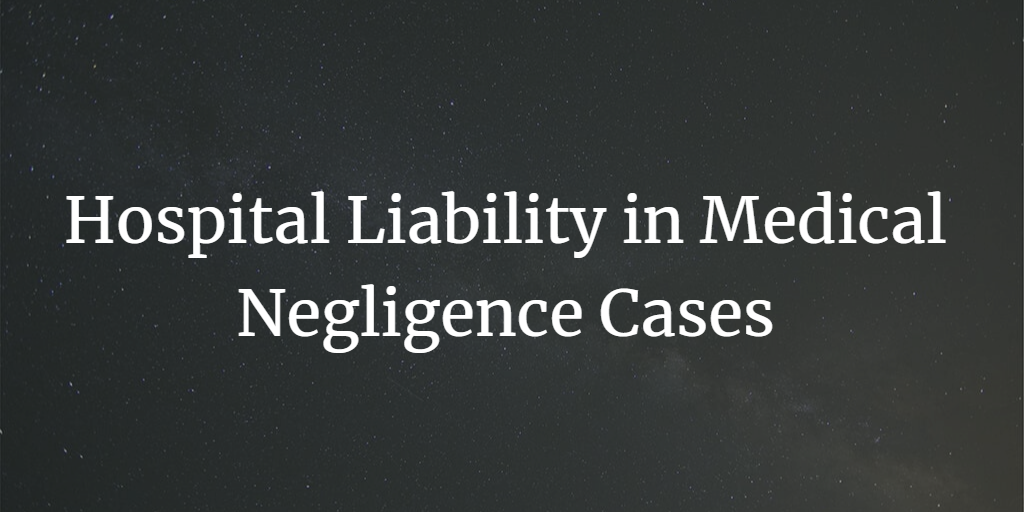Hospital Liability in Medical Negligence Cases: A Comprehensive Guide

Table of Contents
Understanding Medical Negligence
Legal Framework for Hospital Liability in India
Types of Hospital Liability
How to Establish Medical Negligence
Role of Medical Council of India
Conclusion
1. Understanding Medical Negligence
Medical negligence occurs when a healthcare professional, such as a doctor or hospital, fails to provide the standard of care expected of them, resulting in harm to the patient. This could be due to a lack of skill, carelessness, or improper treatment.
2. Legal Framework for Hospital Liability in India
Hospital liability in medical negligence cases in India is governed by various laws and regulations, including:
The Indian Contract Act, 1872
The Indian Penal Code, 1860
The Consumer Protection Act, 1986
The Medical Council of India (MCI) guidelines
3. Types of Hospital Liability
Hospitals can be held liable for medical negligence in the following ways:
Vicarious Liability: Hospitals can be held responsible for the negligent acts of their employees, such as doctors, nurses, and other staff members.
Direct Liability: Hospitals can be held directly liable for their negligence, such as inadequate facilities, improper sterilization, or lack of necessary equipment.
Independent Contractor Liability: Hospitals can be held liable for the negligence of independent contractors they hire, such as specialized doctors or consultants, if it can be proved that the hospital had control over their actions.
4. How to Establish Medical Negligence
To establish medical negligence, the following elements must be proved:
Duty of Care: The healthcare professional or hospital owed a duty of care to the patient.
Breach of Duty: The healthcare professional or hospital breached the duty of care by not providing the required standard of care.
Causation: The patient's harm directly resulted from the breach of duty.
Damages: The patient suffered damages (physical, emotional, or financial) as a result of the negligence.
5. Role of Medical Council of India
The Medical Council of India (MCI) plays a crucial role in regulating medical practice and addressing medical negligence issues. The MCI is responsible for:
Issuing guidelines for medical professionals and institutions
Investigating complaints of medical negligence
Taking disciplinary action against healthcare professionals found guilty of medical negligence
Ensuring adherence to ethical standards in the medical profession
6. Conclusion
Understanding the legal framework and processes involved in hospital liability for medical negligence cases is crucial for patients and their families. By being aware of their rights and the steps they can take to seek redress, patients can ensure that they receive the appropriate care and compensation in cases of medical negligence. Hospitals, too, should be vigilant in maintaining the highest standards of care and ensuring that their staff adhere to the guidelines and regulations set by the Medical Council of India.
In conclusion, hospital liability in medical negligence cases is a complex area of law in India. Patients and their families need to be well-informed about their rights and the legal remedies available to them. Healthcare professionals and institutions must be aware of their responsibilities and take appropriate steps to minimize the risk of negligence, ensuring the well-being of their patients and maintaining trust in the healthcare system.


